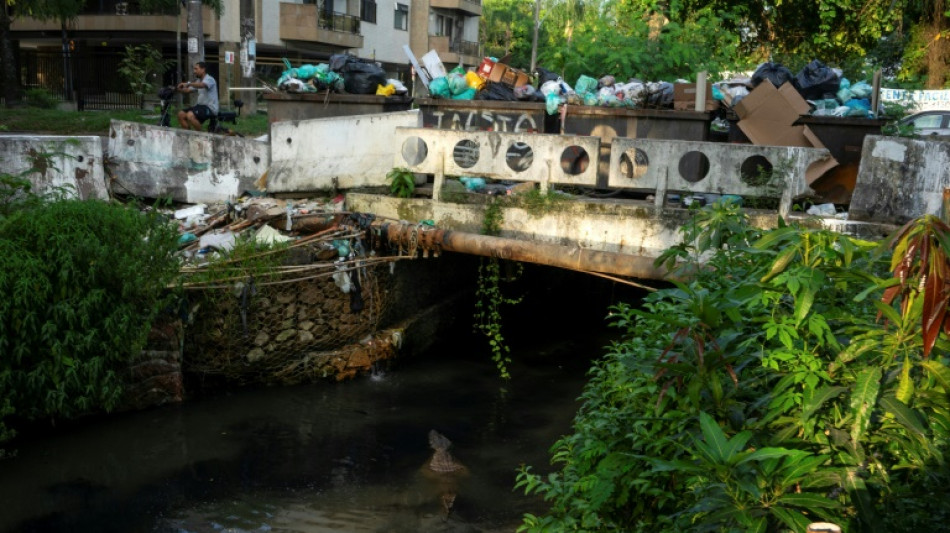
-
 A tale of two villages: Cambodians lament Thailand's border gains
A tale of two villages: Cambodians lament Thailand's border gains
-
Police identify suspect in disappearance of Australian boy

-
 Cuba adopts urgent measures to address energy crisis: minister
Cuba adopts urgent measures to address energy crisis: minister
-
Not-so-American football: the Super Bowl's overseas stars

-
 Trump says US talks with Iran 'very good,' more negotiations expected
Trump says US talks with Iran 'very good,' more negotiations expected
-
Trump administration re-approves twice-banned pesticide

-
 Hisatsune leads Matsuyama at Phoenix Open as Scheffler makes cut
Hisatsune leads Matsuyama at Phoenix Open as Scheffler makes cut
-
Beyond the QBs: 5 Super Bowl players to watch

-
 Grass v artificial turf: Super Bowl players speak out
Grass v artificial turf: Super Bowl players speak out
-
Police warn Sydney protesters ahead of Israeli president's visit

-
 Bolivia wants closer US ties, without alienating China: minister
Bolivia wants closer US ties, without alienating China: minister
-
Ex-MLB outfielder Puig guilty in federal sports betting case

-
 Milan-Cortina Winter Olympics open with dazzling ceremony
Milan-Cortina Winter Olympics open with dazzling ceremony
-
China overturns death sentence for Canadian in drug case

-
 Trump reinstates commercial fishing in protected Atlantic waters
Trump reinstates commercial fishing in protected Atlantic waters
-
Man Utd can't rush manager choice: Carrick

-
 Leeds boost survival bid with win over relegation rivals Forest
Leeds boost survival bid with win over relegation rivals Forest
-
Stars, Clydesdales and an AI beef jostle for Super Bowl ad glory

-
 Dow surges above 50,000 for first time as US stocks regain mojo
Dow surges above 50,000 for first time as US stocks regain mojo
-
Freeski star Gu says injuries hit confidence as she targets Olympic treble

-
 UK police search properties in Mandelson probe
UK police search properties in Mandelson probe
-
Bompastor extends contract as Chelsea Women's boss despite slump

-
 Milan-Cortina Winter Olympics open with glittering ceremony
Milan-Cortina Winter Olympics open with glittering ceremony
-
A French yoga teacher's 'hell' in a Venezuelan jail
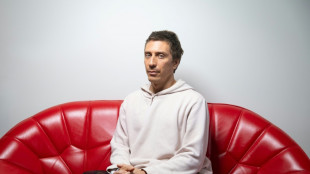
-
 England's Underhill taking nothing for granted against Wales
England's Underhill taking nothing for granted against Wales
-
Fans cheer for absent Ronaldo as Saudi row deepens

-
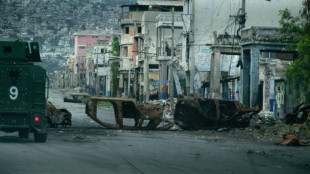 Violence-ridden Haiti in limbo as transitional council wraps up
Violence-ridden Haiti in limbo as transitional council wraps up
-
Hundreds protest in Milan ahead of Winter Olympics

-
 Suspect in murder of Colombian footballer Escobar killed in Mexico
Suspect in murder of Colombian footballer Escobar killed in Mexico
-
Colombia's Rodriguez signs with MLS Minnesota United

-
 Wainwright says England game still 'huge occasion' despite Welsh woes
Wainwright says England game still 'huge occasion' despite Welsh woes
-
WADA shrugs off USA withholding dues

-
 France detects Russia-linked Epstein smear attempt against Macron
France detects Russia-linked Epstein smear attempt against Macron
-
Winter Olympics to open with star-studded ceremony

-
 Trump posts, then deletes, racist clip of Obamas as monkeys
Trump posts, then deletes, racist clip of Obamas as monkeys
-
Danone expands recall of infant formula batches in Europe

-
 Trump deletes racist video post of Obamas as monkeys
Trump deletes racist video post of Obamas as monkeys
-
Colombia's Rodriguez signs with MLS side Minnesota United

-
 UK police probing Mandelson after Epstein revelations search properties
UK police probing Mandelson after Epstein revelations search properties
-
Russian drone hits Ukrainian animal shelter

-
 US says new nuclear deal should include China, accuses Beijing of secret tests
US says new nuclear deal should include China, accuses Beijing of secret tests
-
French cycling hope Seixas dreaming of Tour de France debut

-
 France detects Russia-linked Epstein smear attempt against Macron: govt source
France detects Russia-linked Epstein smear attempt against Macron: govt source
-
EU nations back chemical recycling for plastic bottles
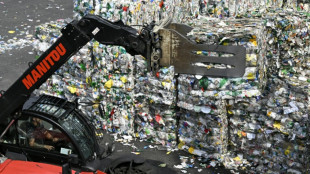
-
 Terror at Friday prayers: witnesses describe blast rocking Islamabad mosque
Terror at Friday prayers: witnesses describe blast rocking Islamabad mosque
-
Iran expects more US talks after 'positive atmosphere' in Oman

-
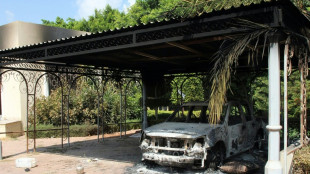 US says 'key participant' in 2012 attack on Benghazi mission arrested
US says 'key participant' in 2012 attack on Benghazi mission arrested
-
Why bitcoin is losing its luster after stratospheric rise

-
 Arteta apologises to Rosenior after disrespect row
Arteta apologises to Rosenior after disrespect row
-
Terror at Friday prayers: witness describes 'extremely powerful' blast in Islamabad


Brazil caimans fight to survive in polluted Rio waters
Intrepid as Crocodile Dundee, Brazilian biologist Ricardo Freitas catches a caiman in the dark of night with a snare pole, then hoists it into his small wooden boat.
Unfazed by the reptile's sharp teeth, he grabs it by the snout and wraps a black band around its muzzle to examine it without getting bitten.
The 1.5-meter (five-foot) caiman is right at home in the lagoon waters of Jacarepagua, a vast, urban district on Rio de Janeiro's west side whose name means "Valley of the Caimans" in the Tupi-Guarani Indigenous language.
Despite the name, there is little trace in Jacarepagua these days of verdant valley or tropical forest: it is increasingly a concrete jungle, with upmarket high-rises surrounding the lagoon and tens of thousands of residents' waste water emptying into it.
Freitas's boat floats on the foul-smelling water directly in front of the sprawling Olympic village from the 2016 Rio Games.
The 44-year-old biologist fears for the future of this ancient species in a world of rampant urbanization: "They're threatened with extinction," he says.
- Swallowed trash and condoms -
Freitas estimates the region is home to around 5,000 broad-snouted caimans (Caiman latirostris).
The largest grow to more than three meters long.
One major threat to their survival: 85 percent of the specimens he examines are males, an imbalance he blames on pollution.
"Caimans are laying their eggs in extremely polluted areas, where the water temperature is higher. That makes it more likely the offspring will be males," he says.
"It's a species where sex is determined by the incubation temperature of the eggs... Here, the water is a lot warmer because of all the decomposing materials."
That threatens the entire ecosystem, not just the caimans, he adds.
"Since (caimans) are at the top of the food chain, they are key to maintaining equilibrium between species. Without caimans, the area's biodiversity would be completely compromised."
Freitas, who has a PhD in ecology, has been studying these waters for more than 20 years.
The head of a small conservation group called the Jacare Institute, he has captured and logged data on more than 1,000 caimans.
Aboard his boat, he weighs, measures and takes scale samples from the reptiles to analyze them for levels of contamination from lead, mercury and other heavy metals.
He also pumps their stomachs to see what they have been eating.
"I've found all kinds of waste: plastic bags, pieces of cans, bottle caps, even condoms," he says.
- 'State of abandonment' -
Rampant urbanization has steadily reduced the caimans' native habitat, drawing them into polluted residential areas in search of food.
In a canal through the Terreirao, a working-class neighborhood, caimans are literally swimming in refuse.
One peeks out just its snout through a carpet of waste in the water, including a dismembered doll and a deflated football.
"It's sad to see them in the middle of all this pollution. It's a little scary to live so close to them, but they almost never leave the water," says 34-year-old resident Regina Carvalho, a preschool assistant.
When the canal floods, locals sometimes find themselves nose to nose with the wild animals.
But shopkeeper Alex Ribeiro, 58, says he has "never heard any talk of attacks."
"Everything is in a state of abandonment here, with makeshift sewage pipes from people's houses emptying into the canal," he says.
"You can imagine the level of pollution the caimans are exposed to."
E.AbuRizq--SF-PST

